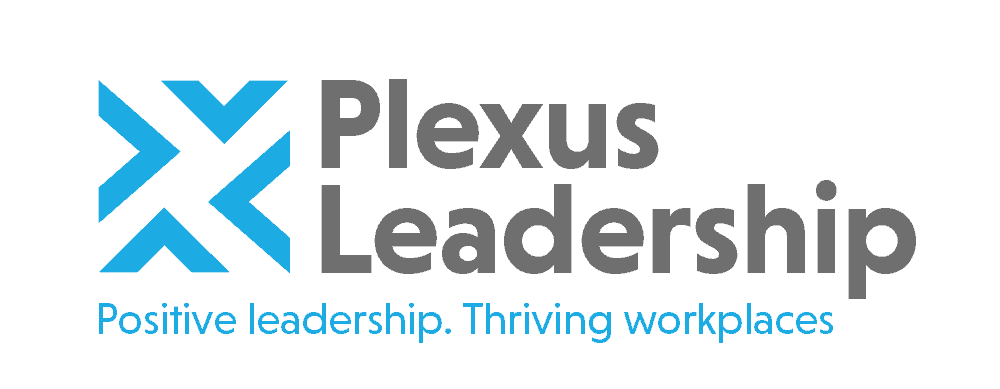Most leaders assume they have set clear expectations and that their team members and stakeholders should know what they want. However, our experience suggests that this is usually not the case and is often the cause of performance shortfalls, relationships breakdowns and a host of other workplace problems.
It is clear to us that expectation setting is one of the most undervalued and poorly applied disciplines of leadership. Yet, it is also arguably the most important, especially in a fast-changing and uncertain world where people are looking for clarity, transparency and meaning.
Why expectation-setting is such a powerful discipline
A lack of clear expectations not only undermines performance and results within a team, but also impacts negatively on engagement, relationships and teamwork.
Unclear standards can also lead to serious employee relations problems including grievances, destructive conflict and unfair dismissal claims which can be very costly for the organization.
There are many different occasions when leaders should invest time and effort setting, clarifying, and implementing expectations. Some of the more common situations include:
• Building a team
• Building or improving relationships with co-workers or stakeholders
• Performance dialogues/appraisals with employees
• During times of change and re-organisation
• When changing the company’s culture
• When managing underperformance
• When agreeing how decisions will be made
Types of expectations
Expectations fall into 2 main areas:
Performance expectations
These concern the outcomes and results that are expected of the employee or team.
Cultural and behavioural expectations
These relate to the values, behaviours and attitudes that are expected in the role, team, and organization.
Keys to effective expectation setting
There are 5 keys to setting clear expectations:
Set expectations that stretch and challenge people
Research consistently shows that by setting ambitious goals and expectations, most people will strive to achieve these standards and performance overall will go up. This “self-fulfilling prophecy” or “Pygmalion effect” is as powerful at work as it was in the famous stage show and movie that has given this effect its name.
The trick is to set expectations that challenge people to stretch themselves yet are realistic and don’t put too much strain on people. If you continuously overstretch people with unrealistic expectations and goals, they are likely to burn out and you will undermine their motivation, performance, and wellbeing. But setting low or unambitious expectations should be avoided as it typically leads to average or lacklustre standards and performance.
Be crystal clear on exactly what you expect
This sounds obvious, however, in my experience, very few leaders take the time to clarify their expectations and the rationale for them by writing them down. When leaders clarify their expectations in an explicit and visual way, they are more likely to be able to articulate them with clarity and conviction to their employees and team. By clarifying why each of the expectations is important to the overall goals and strategy, you will anchor the expectations in the hearts and minds of people, improving the chances that they will be valued, prioritized and implemented.
Invite those affected to help shape expectations
Insofar as possible, invite feedback from your employees, team or others affected by your proposed expectations. This will ensure you gain their commitment and support to facilitate effective implementation. They may also have different ideas about the expectations and standards that are important for effective performance and teamwork. However, you should retain the ultimate decision power to determine the final set of expectations that will be applied.
Encourage people to share their expectations of you
To build a positive and productive relationship, expectation setting should be a two-way process. Encourage your team members and other key stakeholders to share their expectations with you during 1-1 dialogues or stakeholder meetings and be prepared to listen and take on board their input and feedback. This will enable you to uncover any differences and align on expectations that are important for the healthy functioning of the relationship, paving the way for greater trust, respect and openness.
Consistently communicate and role model your expectations
To be an effective leader you need to consistently communicate and reinforce your intentions and expectations. These should be communicated at every opportunity including team meetings and events, 1-1 dialogues, coaching conversations, etc.
However, talking about your expectations is not sufficient. Leaders should also ‘walk the talk’ and role model what the expected standards looks like in practice. For example, if the leader wants to reinforce a standard around diversity and inclusion in the workplace, they should ensure people don’t feel excluded in team meetings and avoid playing favourites. Similarly, if a leader expects people to continuously learn and grow, (s)he should share and visibly implement a development plan and acknowledge areas of weakness.
Regardless of whether the leader is new or has been in role for some time, it is crucial they establish and communicate clear and stretching expectations to achieve the best possible outcomes and promote healthy relationships. Great leaders set the pace by ensuring these expectations are translated into day-to-day habits to promote an environment of deliberate action, accountability and achievement. Because they are clear about what they expect and ask for high standards of behaviour and achievement, they generally deliver exceptional results and a positive, energizing work environment.
Other Posts

About the Author
James Brook
Founder and MD | Leadership Consultant | Organizational Psychologist
James is a leadership consultant, organizational psychologist and executive coach. He has over 25 years’ experience working with leaders, teams and organizations globally to optimize their performance, talent and future success. He specializes in positive leadership, thriving workplaces, collaboration and influencing, organizational change and transformation, accelerating innovation and coaching executives and leaders in innovative sectors including Tech, Digital, E-commerce and Life Sciences.
Before setting up Plexus Leadership, James held leadership roles in HR and Talent Management in the UK and abroad with companies such as NatWest, Yahoo! and Novo Nordisk Pharmaceuticals. After this, he founded and led several talent and leadership consulting and assessment businesses, including Strengthscope®, an online strengths assessment and development business serving a wide range of UK and global clients. James grew this venture into a global market leader before selling the business in 2018.
James has supported, advised and coached leaders and teams globally across diverse industries and geographies. Clients he has worked with include Allen & Overy, Commvault, Equinor, Facebook, GSK, Hilton, John Lewis, Novartis Pharmaceuticals, NHS, Oracle, Sainsbury’s, Swiss Re, Tesco, Takeda Pharmaceuticals, WSP and Yahoo!.
James has a Master’s in Organizational Psychology, an MBA, an Advanced Diploma in Executive Coaching and a Harvard Business qualification in Sustainable Business Strategy. He is a member of the Institute of Directors, the Association of Business Psychologists and a Fellow of the Chartered Institute of Personnel and Development (FCIPD). He is currently undertaking a PhD in Organizational Psychology examining the start-up experiences of Tech and Digital entrepreneurs.
James is a regular contributor and speaker on leadership, coaching, innovative talent management and the future of work. His most recent book, Optimize Your Strengths, explores how leaders can create thriving workplaces by inspiring and supporting people to optimize their potential and teamwork to deliver breakthrough results.





